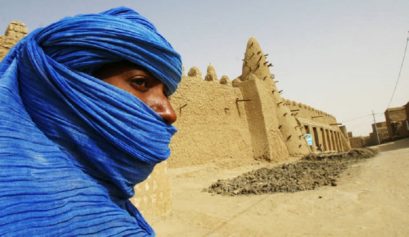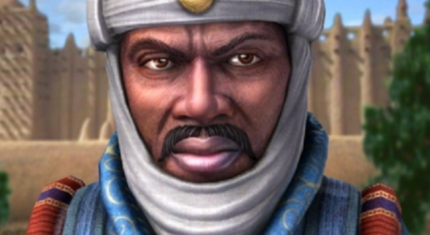The situation in Mali appeared on the brink of possible resolution when rebels agreed to engage in peace talks to be held on Thursday. But that hope is dissipating as Malian soldiers were forced to fire warning shots today as rebels began to move south to advance on them.
On the eve of the peace talks, most observers don’t think the rebels, who are in control of two-thirds of the African nation, are committed to sitting down and hammering out a resolution that will save the country from chaos. Ansar Dine, one of the factions pushing south, announced that it was calling off the ceasefire it had agreed to because it was upset by the African Union force that was being created to take on the rebels.
According to a source for the Mali military, the Malian army was forced to fire heavy artillery during the night to spook the Islamist fighters into halting their advance.
“The army fired warning shots at several points along the line during the night, to dissuade them,” the defense ministry source in Bamako told Reuters.
The peace talks between some of the northern rebel factions and the government are scheduled for Thursday in Ouagadougou, the capital of neighboring Burkina Faso. But after the southern advance of Ansar Dine, it is not clear whether the talks will even happen.
Since Mali’s president, Amadou Toumani Toure, was ousted in March, the north and east of the country have been under the control of Tuareg rebels and militias linked to al-Qaida.
Under international pressure to stabilize Mali and stop al-Qaida-connected terrorist groups from spreading to other countries and into Europe, the U.N. Security Council approved plans last month for European nations to train a force of West African troops to secure the region. Analysts are not hopeful that such an effort has any chance of succeeding.
The force would likely consist of about 3,300 soldiers from West Africa and the training probably would not be complete until September of next year.
“The prospects are not brilliant,” a former intelligence chief, who asked to remain anonymous, told Al-Jazeera.
The fighters will attack “when we’re not expecting it, in small groups that strike and quickly withdraw. That’s the basics of guerrilla warfare.”
The soldiers would come mainly from Nigeria, Niger and Burkina Faso. Ivory Coast President Alassane Outtara told reporters in Nigeria’s capital Abuja last month that other West African countries and two or three non-African states may also contribute forces.
When the U.N. Assistant Secretary-General for Human Rights Ivan Simonovic returned from Mali in October, he reported to the world community that Islamist militias had imposed a harsh version of Sharia law on the areas they controlled, drastically affecting the lives of women in particular. Mali residents in the north told him of forced marriages, forced prostitution, widespread rape, and women being sold as “wives” for less than $1,000.
Until recently, Mali was a shining light in Africa, with 5 percent annual economic growth over the last 10 years and thriving gold and cotton industries. But the rebels have squashed any hopes of prosperity for this land-locked nation of 16 million.
“It’s hell,” said Ahmadou Cissé, a guide in the tourist city of Djenné, which is among many sites where people are barely surviving as tourism has disappeared. Cissé is supporting 12 family members on his rapidly declining income. His family can only afford one meal a day.
In Bamako, hotels such as the ritzy Azalai Grand have closed or laid-off staff. In the Marché de N’Golonina, where artisans sell crafts along one main alley, there is little trade.
Last month, the internal crisis in Mali grew even more chaotic when soldiers “arrested” the prime minister, Cheikh Modibo Diarra, and forced him to go on television at 4 a.m. and announce his resignation to the nation.
A spokesman for the military junta said Diarra, an astrophysicist who previously led one of NASA’s Mars exploration programs, was forced to resign because he “doesn’t get along” with the army captain who led the coup in March. Diarra was taken from his home, forced into a car and driven to the Kati military camp, the base from which the March 21 coup was launched.
Northern Mali is currently under the control of Muslim extremist groups and terrorist groups such as the North African arm of al-Qaida, Al-Qaida in the Islamic Maghreb (AQIM), the same group blamed for the attack on the U.S. Consulate in Libya that killed Ambassador Chris Stevens.
The head of AQIM, Abou Moussab Abdel Wadoud, is not backing down, warning France and West African nations that they will pay a price if Europe intervenes.
“If you [France and its supporters in Africa] want a war, the Sahara will become a huge graveyard for you and your interests,” Abou said, in a video posted on pro-Islamist websites last month.
Just days after the U.N. last month approved the training of West African soldiers, the fighters showed their contempt and disregard for the action by continuing their destruction of historic mausoleums in Timbuktu.
The rebels claim that the mausoleums are an affront to Allah and they continued acts they began over the summer.
“Not a single mausoleum will remain in Timbuktu, Allah doesn’t like it,” Abou Dardar, leader of the Ansar Dine group, told the French news service AFP. “We are in the process of smashing all the hidden mausoleums in the area.”


